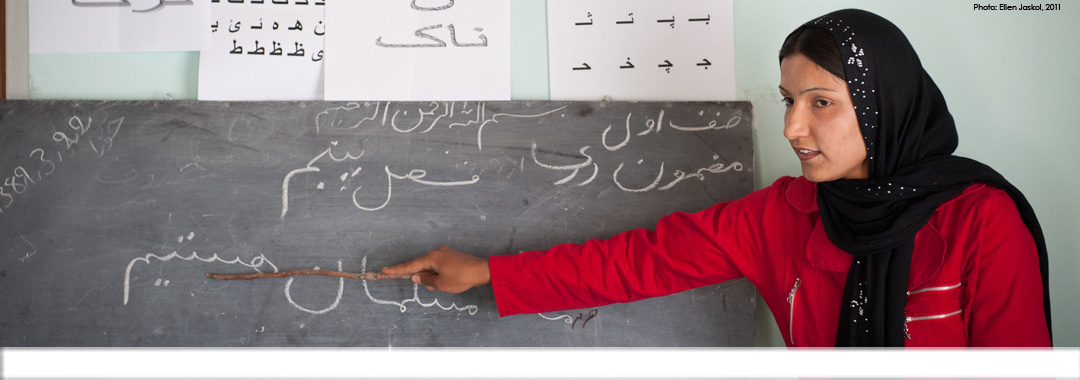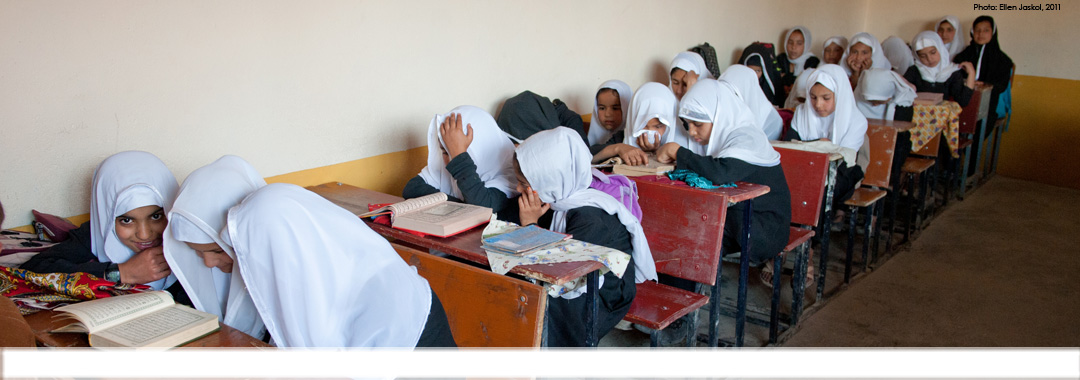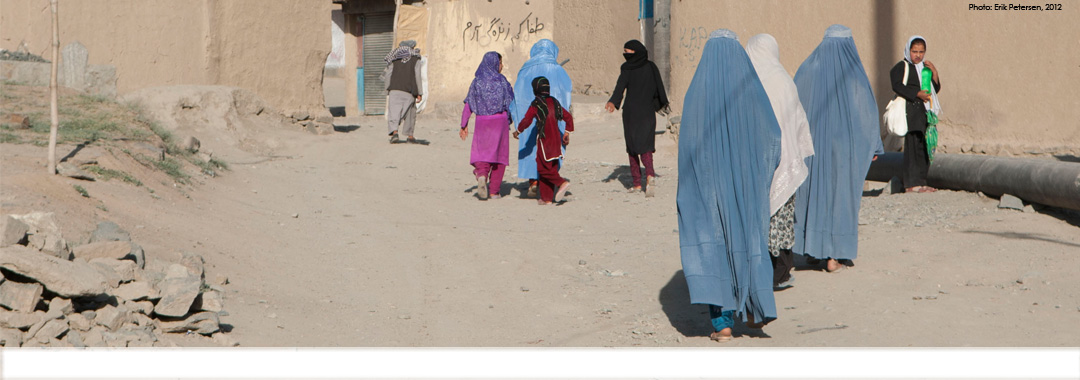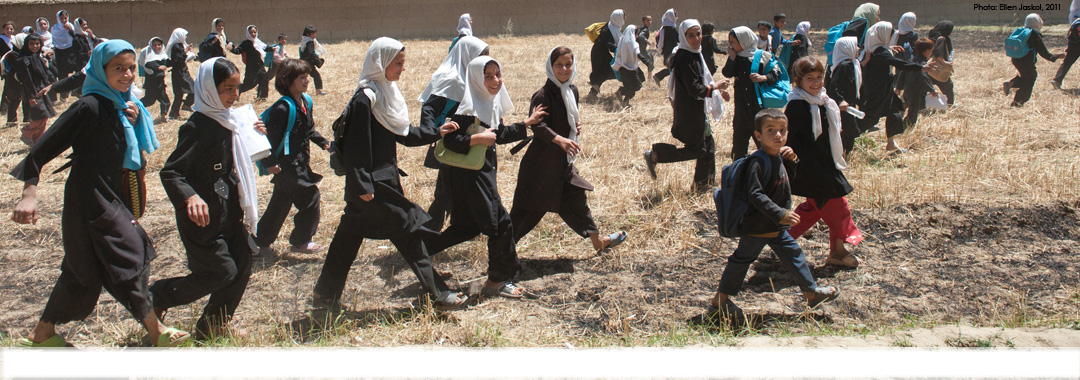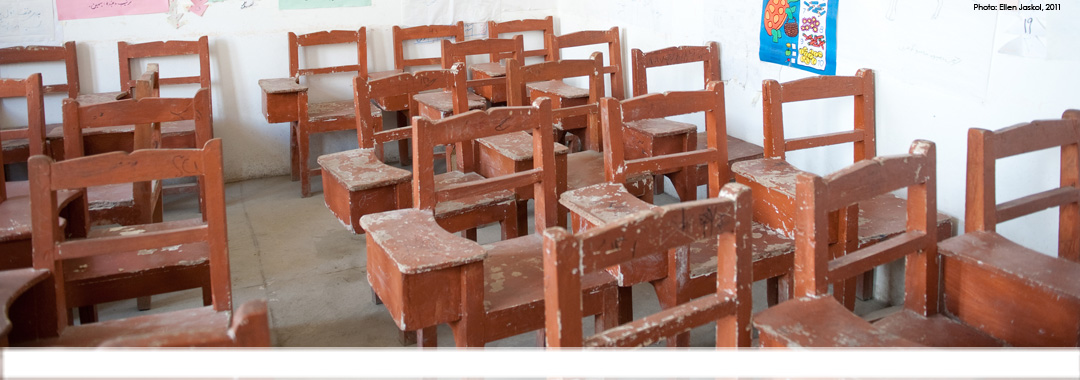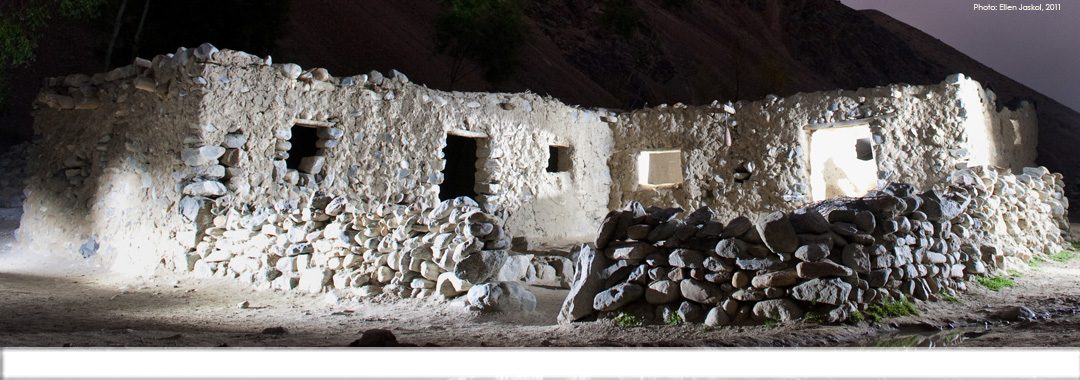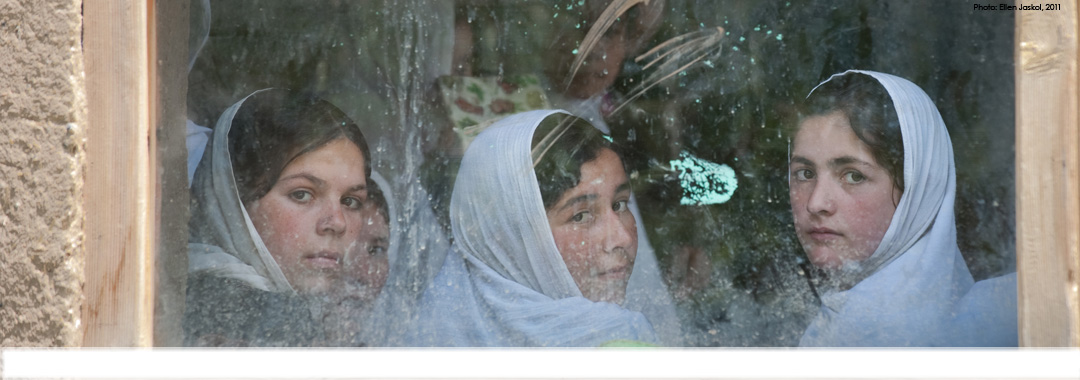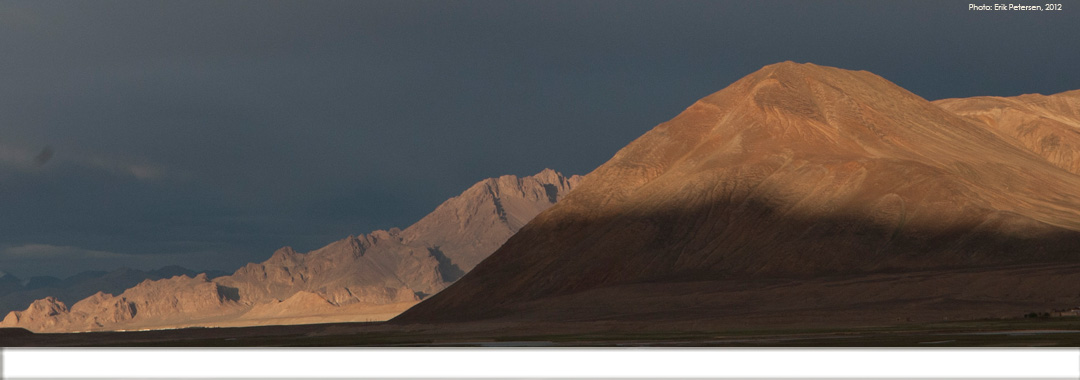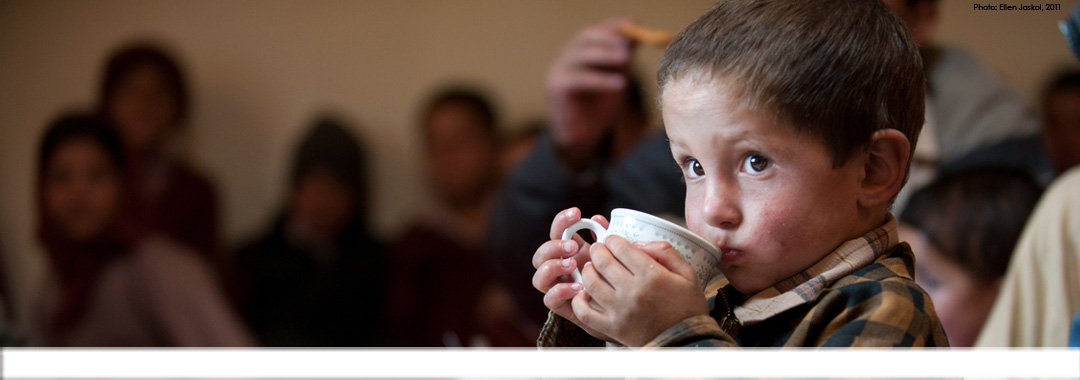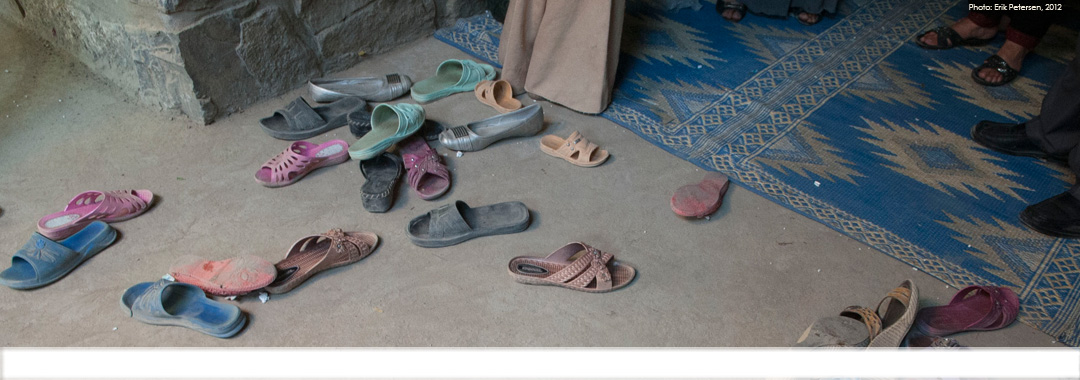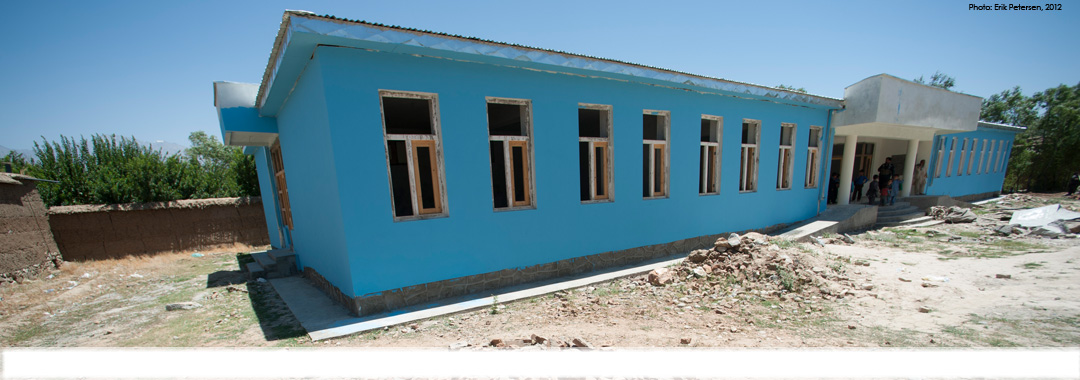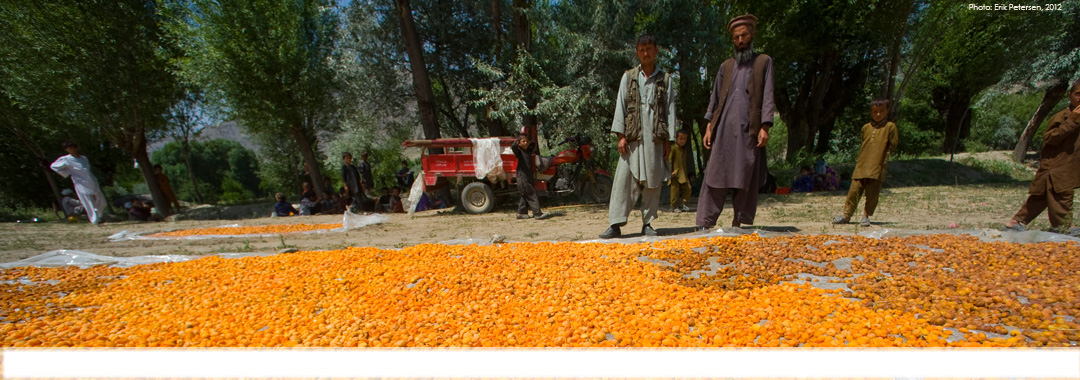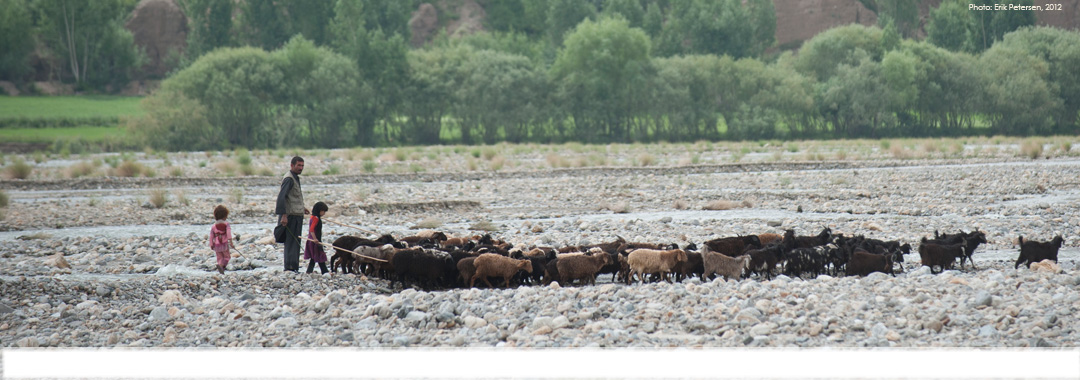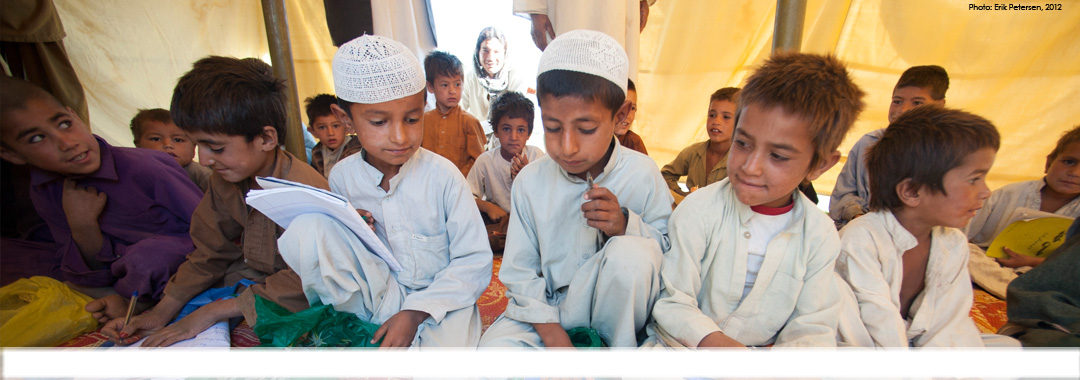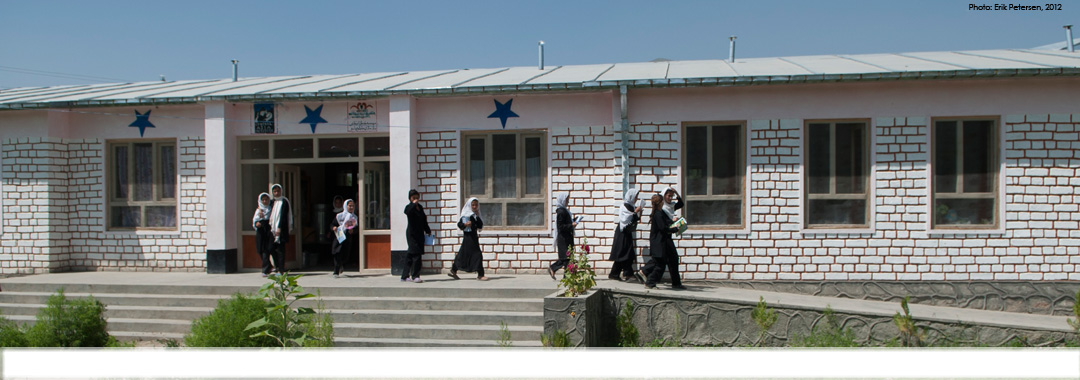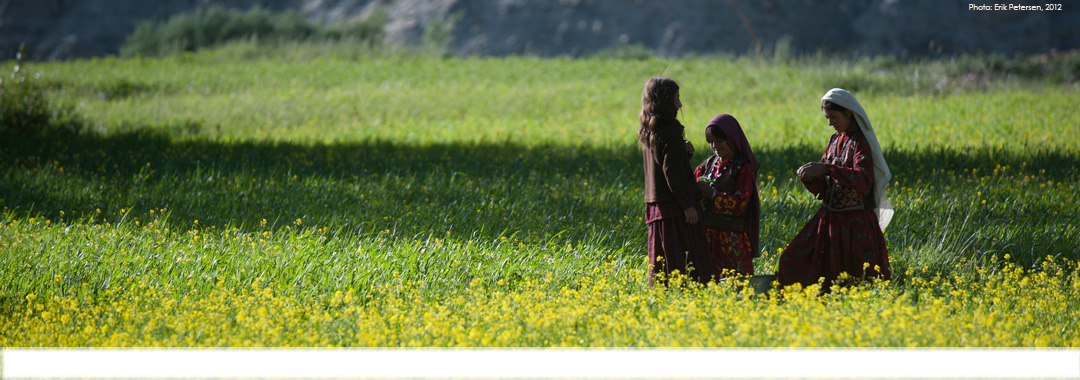Programs
Central Asia Institute has many projects that support its mission to promote education and literacy in Pakistan and Afghanistan.
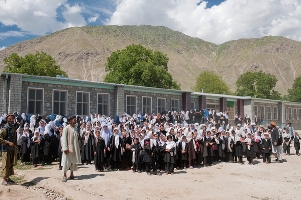
School Buildings
The process undertaken to build new schools or improve existing structures requires an invitation
from the local community and many months, or sometimes years, of preplanning with village elders,
tribal chiefs, military commanders, Islamic clerics, and government officials influential in the
area. Each project involves local people in all phases: initiation, implementation, and evaluation.
A committee of elders and experts guide these phases to completion, arranging for the community to
match CAI project funds (for skilled labor and materials) with local resources (wood, land and sand,
and the like) and sweat equity (free or subsidized labor). Such commitment ensures the project’s
viability and long-term success. Once the school has been completed, furnished, and stocked with
supplies, CAI remains connected to the people, providing financial and education support until the
village can sustain the school’s costs on its own.

Scholarships
Central Asia Institute awards primary, secondary, and advanced-education scholarships. When students
graduate from their village primary schools, in some instances, they are left with no further
structured education. Students who are interested in advancing their studies in a larger town, but
are financially incapable of doing so, can apply through the local CAI project manager for a
scholarship. Scholarships include room, board, tuition, school supplies, textbooks, uniforms, and
paid travel to and from school. The advanced-education scholarships support many areas of training,
including teacher, healthcare, animal husbandry, law, communications, and others.
Teachers
One of the most important steps to establishing education in a remote village is community
participation and a dedicated local teacher. In the Northern regions of Pakistan, there is little
government or outside support for teachers in the regions CAI serves. The few teachers who taught
prior to 1993 were mostly volunteers. CAI has been able to make a profound difference simply by
providing funding for stable salaries. Due to the significant problem of few highly qualified
teachers in the region, CAI selects a local educated person – even if their education is limited.
CAI helps provide funds for teacher training for these individuals on an as-needed basis. Although
local and federal governments physically own completed projects, CAI still provides financial
support in many cases. Funding the hiring of a local teacher ensures community involvement and
investment in their children’s education, and the teacher also has his/her own community ties and
personal reasons to stay in the area.
Public Health
In conjunction with education projects, CAI provides funding for resources that are devoted to
critical needs, including public health and environmental sustainability. We do this through clean
water projects, healthcare programs, and disaster relief.
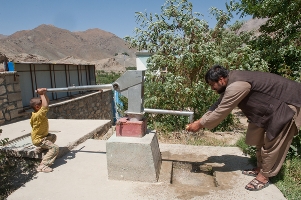
Water Projects
In developing countries, one of the main causes of death in children under 5 years of age is the
basic lack of clean water. The children that do survive the ill effects of waterborne diseases often
suffer from stunted growth and development. CAI provides funding for clean drinking water and
sanitation projects that result in profound benefits for communities, families, and children.
Healthcare Programs
CAI provides funding for healthcare training, supplies, and support for women through infirmaries,
dispensaries, and occasional healthcare clinics.
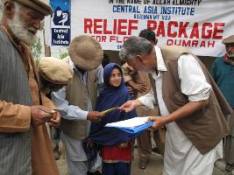
Disaster Relief
Although it is not a priority, CAI has provided educational support after disasters hit parts of
Pakistan and Afghanistan. Pakistan’s October 2005 devastating earthquake and the August 2010 floods
and landslides left thousands of people without food, shelter, and schools. The Government of
Pakistan, UN agencies and non-governmental organizations provide immediate needs such as water and
sanitation, nutrition, child protection and education to assist with the disaster relief, and then
CAI will provide financial and significant support to set up tent schools, rebuild schools, and
provide education opportunities to the communities affected.
Women’s Vocational Centers & Literacy Centers
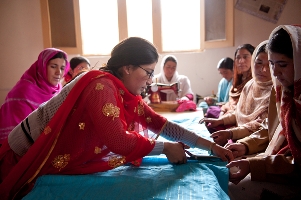
Empowering women in remote villages is an important aspect of CAI’s work. Over the years, CAI has provided funds to establish numerous women’s vocational centers that provide skills training, equipment, and materials. Women can be independently earning income from the sale of handicrafts and clothing to help support their families, which stimulates the local economy and empowers women in a society where their opportunities are limited. CAI has also found that, in addition to building basic skills and literacy, the centers become important places for women to come together in their communities, share concerns, and solve problems.
CAI has also provided funds to set up and support literacy centers that offer free daily lessons in basic literacy, hygiene, sanitation, and nutrition. Often a “center” is located in women’s private homes in Afghanistan, where women can gather and learn to read and write. CAI pays the teacher and provides the funds for textbooks, notebooks, pencils, and erasers.

Global Outreach
Central Asia Institute’s Global Outreach Program was established to promote awareness of the
importance of primary education, literacy, and cross-cultural understanding. CAI reaches communities
worldwide via its websites, public events, publications,
the Pennies for
Peace program, and the books Three Cups of Tea and Stones into
Schools.
Pennies for Peace is an international service-learning program designed to help students broaden their cultural horizons and learn about their capacities as philanthropists. It educates students about the world beyond their experience and shows them that they can make a positive impact on a global scale, one penny at a time. Students learn the rewards of sharing and working together to bring hope and education opportunities to the children in Pakistan and Afghanistan. While a penny is virtually worthless in the United States, in impoverished countries a penny buys a pencil and opens the door to literacy. Literacy, for both boys and girls, provides better economic opportunities in the future and neutralizes the power of despot mullahs and other extremist leaders.

